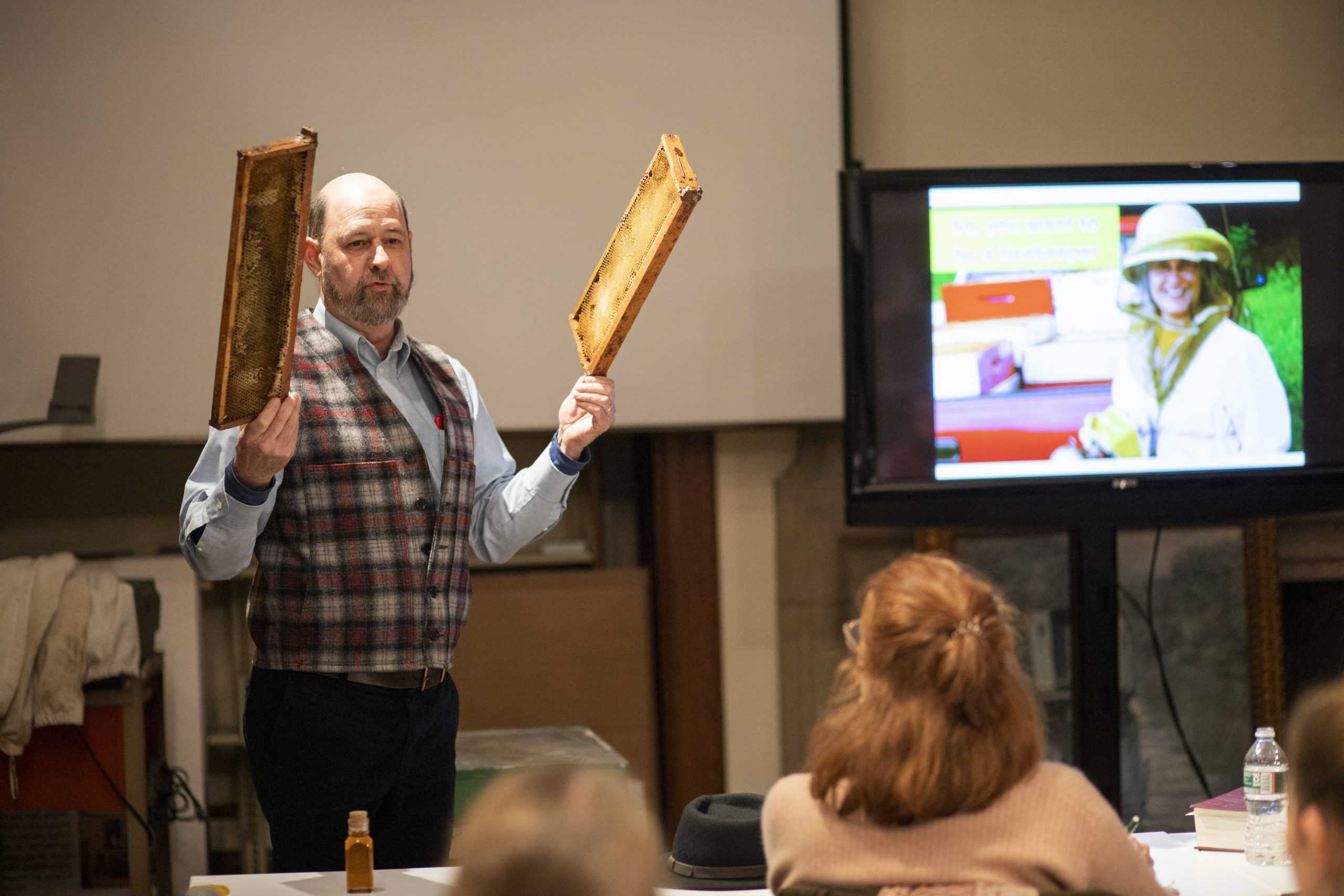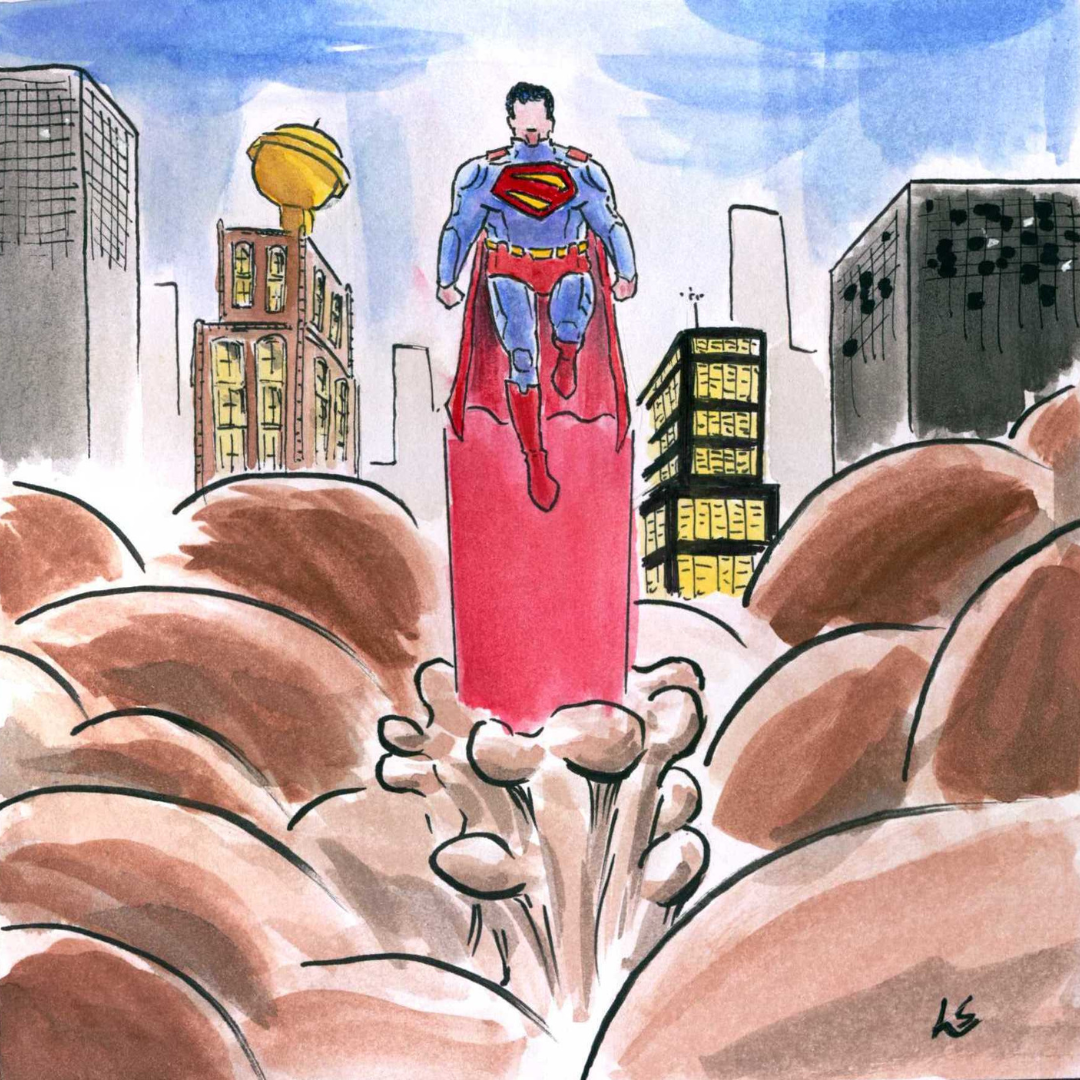“You don’t mind being thought of as ‘a bit odd.’”
“You admire insects.”
“Getting stung repeatedly and not minding it is in the realm of possibilities for you.” “You accept that Mother Nature can be a b—- at times.”
If any one of these statements are applicable, then you might just be a beekeeper, according to Scott Guiser, an instructor of soil science with 20 years of experience teaching at The Barnes Arboretum.
Guiser passed out sheets of paper, all of which listed these statements. He then addressed a room of students, and other attendees, speaking about honey bee life, their byproducts and overall holistic benefits, in the arboretum on Feb. 13.
“Beekeeping is a great and incredibly interesting hobby,” Guiser said. “It’s not a particularly easy hobby, but can absolutely be rewarding.”
Guiser has been beekeeping consistently for over 40 years. Bill Rein, assistant director of living collections and horticulture programs, said this type of experience helps to educate the community on information that they might not have otherwise known.
“These programs help reach out to the community,” Rein said. “The Barnes Foundation was based on education.”
Liv O’Reilly ’20 attended the talk because of her increasing interest in bees that sparked last summer after attending a beekeeping instructional event at Benuels Bees.
“When you see it in person, you realize how feasible it is,” O’Reilly said.
Guiser said this feasibility is what allows hobbyists and farmers to capitalize on honey bees’ pollination capabilities.
“Honey bees do a tremendous job of pollinating crops that are important to us,” Guiser said. “Almonds, apples, blueberries, cherries, cucumbers. A lot of the foods that we treasure require pollination and honey bees are tremendously effective pollinators.”
O’Reilly partially attended the event to further research the possibility of bringing beekeeping to the St. Joe’s campus.
“It would be a great opportunity for St. Joe’s, especially with the community garden,” O’Reilly said. “There is a lot of potential for growth. With the university’s increased focus of sustainability on campus, it’s the time to do more projects like this.”
O’Reilly also pointed out the significant amount of possibilities that come with beekeeping on campus.
“We’re hoping to get work study involved, I think Summer Scholar projects would be incredibly [valuable] as well,” O’Reilly said. “Potentially once we get the honey, we can get the American Marketing Association involved.”
Guiser said this type of interest has been going strong for the past 15 years.
“A lot of people are aware of serious problems [with honeybee populations],” Guiser said. “That drives a lot of the current interest in hobby beekeeping.”
According to the U.S. Department of Agriculture, 40% of managed honey bee colonies didn’t make it through the 2019 winter.
Through the talk, Rein hoped people walked away with an overall better understanding of nature and the environment.
“We want people to gather new information and have an appreciation for this space,” Rein said.














































